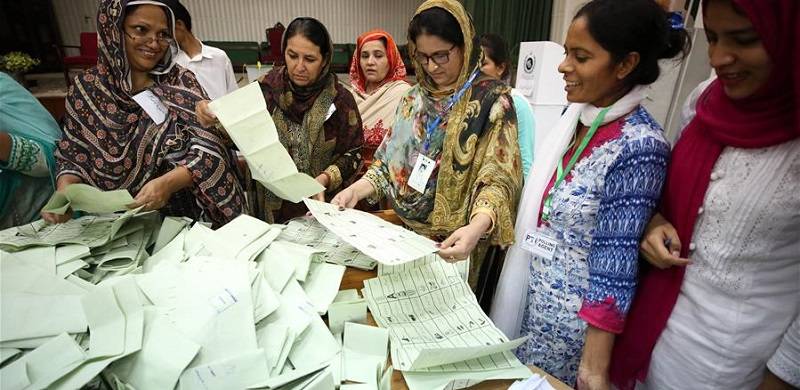
The abusive and egotistical fervour coupled with an inflated sense of entitlement that has gripped the minds of PTI supporters is bordering on the delusional, and may well cause more harm than benefit for the country’s future.
Of course, the popularity of Imran Khan as a rakish cult figure cannot be discounted at all. In fact, his graph has taken a U-turn and having pulled up from a nose-dive, has improved considerably since the vote of no confidence in parliament that ousted him. This is because he has successfully played the victim card to his advantage.
But national elections are a different animal altogether.
If one were to judge merely by the strength of one’s crowd-pulling ability, and the sheer size of crowds at a party jalsa or event, then the Tehreek-e-Labbaik Pakistan (TLP) should be winning the elections hands down and forming the next government.
However, as reality would have it, despite the sheer numbers of people that the TLP can assemble at one place, the broader country-wide electoral outcome for them would probably be around half a dozen seats or so.
Furthermore, rural and urban politics are quite contrasting, when we consider the factors that play a decisive role in the final election results. The influence of electables, who always keep an eye on which way the wind is blowing, becomes crucial in outcome of rural elections, as does the distribution of tickets and inter-party adjustments and withdrawal of candidates. The compulsions of different groupings, baradri alignments, past favours, current indications from those who we euphemistically call “relevant quarters”, etc. – all these factors play a much bigger role than a leader’s views on international politics or claims of foreign conspiracies, at least when it comes to the casting of votes and who gets elected.
This is not to say that PTI will not perform robustly, especially in towns and bigger cities, and give the opposing candidates a good run for their money. Yes, PTI will bag a good share of the total votes, divided amongst all constituencies. But a ‘good share’ may not be good enough to cross the winning line.
Of course, the popularity of Imran Khan as a rakish cult figure cannot be discounted at all. In fact, his graph has taken a U-turn and having pulled up from a nose-dive, has improved considerably since the vote of no confidence in parliament that ousted him. This is because he has successfully played the victim card to his advantage.
But national elections are a different animal altogether.
If one were to judge merely by the strength of one’s crowd-pulling ability, and the sheer size of crowds at a party jalsa or event, then the Tehreek-e-Labbaik Pakistan (TLP) should be winning the elections hands down and forming the next government.
However, as reality would have it, despite the sheer numbers of people that the TLP can assemble at one place, the broader country-wide electoral outcome for them would probably be around half a dozen seats or so.
Furthermore, rural and urban politics are quite contrasting, when we consider the factors that play a decisive role in the final election results. The influence of electables, who always keep an eye on which way the wind is blowing, becomes crucial in outcome of rural elections, as does the distribution of tickets and inter-party adjustments and withdrawal of candidates. The compulsions of different groupings, baradri alignments, past favours, current indications from those who we euphemistically call “relevant quarters”, etc. – all these factors play a much bigger role than a leader’s views on international politics or claims of foreign conspiracies, at least when it comes to the casting of votes and who gets elected.
This is not to say that PTI will not perform robustly, especially in towns and bigger cities, and give the opposing candidates a good run for their money. Yes, PTI will bag a good share of the total votes, divided amongst all constituencies. But a ‘good share’ may not be good enough to cross the winning line.

